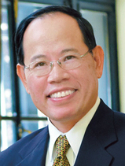A phase I/II trial of a polysaccharide extract from Grifola frondosa (Maitake mushroom) in breast cancer patients: Immunological effects Journal Article
| Authors: | Deng, G.; Lin, H.; Seidman, A.; Fornier, M.; D'Andrea, G.; Wesa, K.; Yeung, S.; Cunningham Rundles, S.; Vickers, A. J.; Cassileth, B. |
| Article Title: | A phase I/II trial of a polysaccharide extract from Grifola frondosa (Maitake mushroom) in breast cancer patients: Immunological effects |
| Abstract: | Cancer patients commonly use dietary supplements to "boost immune function". A polysaccharide extract from Grifola frondosa (Maitake extract) showed immunomodulatory effects in preclinical studies and therefore the potential for clinical use. Whether oral administration in human produces measurable immunologic effects, however, is unknown. In a phase I/II dose escalation trial, 34 postmenopausal breast cancer patients, free of disease after initial treatment, were enrolled sequentially in five cohorts. Maitake liquid extract was taken orally at 0.1, 0.5, 1.5, 3, or 5 mg/kg twice daily for 3 weeks. Peripheral blood was collected at days -7, 0 (prior to the first dosing), 7, 14, and 21 for ex vivo analyses. The primary endpoints were safety and tolerability. No dose-limiting toxicity was encountered. Two patients withdrew prior to completion of the study due to grade I possibly related side effects: nausea and joint swelling in one patient; rash and pruritus in the second. There was a statistically significant association between Maitake and immunologic function (p < 0.0005). Increasing doses of Maitake increased some immunologic parameters and depressed others; the dose-response curves for many endpoints were non-monotonic with intermediate doses having either immune enhancing or immune suppressant effects compared with both high and low doses. Oral administration of a polysaccharide extract from Maitake mushroom is associated with both immunologically stimulatory and inhibitory measurable effects in peripheral blood. Cancer patients should be made aware of the fact that botanical agents produce more complex effects than assumed, and may depress as well as enhance immune function. © 2009 Springer-Verlag. |
| Keywords: | adult; clinical article; controlled study; aged; middle aged; unclassified drug; clinical trial; drug tolerability; dose response; drug safety; drug withdrawal; cancer patient; comparative study; neoplasm staging; immune system; phase 2 clinical trial; cohort studies; breast cancer; nausea; drug administration schedule; cohort analysis; dose-response relationship, drug; breast neoplasms; drug dose escalation; pruritus; rash; blood; immunology; cytokines; drug toxicity; plant extract; polysaccharide; mushroom; maximum tolerated dose; phase 1 clinical trial; drug dose increase; immunosuppressive treatment; botanical; complementary and alternative medicine; dietary supplement; herbal; maitake; optimal dose; grifola frondosa extract; maitake extract; ex vivo study; grifola frondosa; joint swelling; liquid; parameter; postmenopause; administration, oral; grifola; polysaccharides |
| Journal Title: | Journal of Cancer Research and Clinical Oncology |
| Volume: | 135 |
| Issue: | 9 |
| ISSN: | 0171-5216 |
| Publisher: | Springer |
| Date Published: | 2009-09-01 |
| Start Page: | 1215 |
| End Page: | 1221 |
| Language: | English |
| DOI: | 10.1007/s00432-009-0562-z |
| PUBMED: | 19253021 |
| PROVIDER: | scopus |
| PMCID: | PMC3751581 |
| DOI/URL: | |
| Notes: | --- - "Cited By (since 1996): 10" - "Export Date: 30 November 2010" - "CODEN: JCROD" - "Source: Scopus" |
Altmetric
Citation Impact
BMJ Impact Analytics
MSK Authors
Related MSK Work











